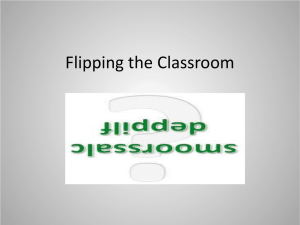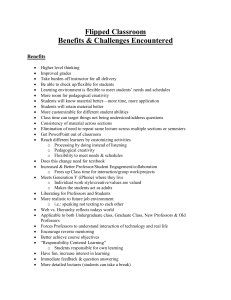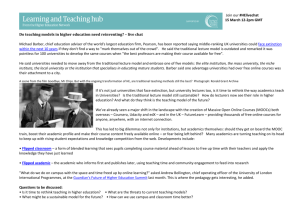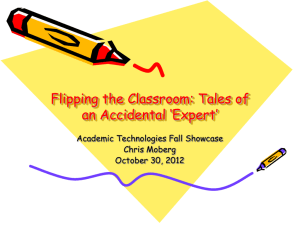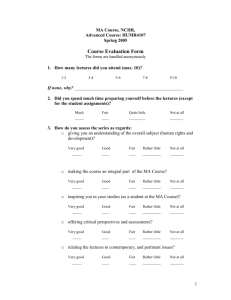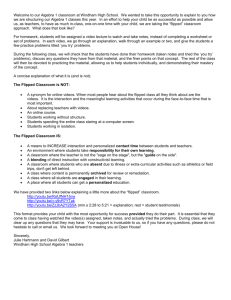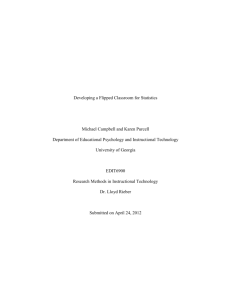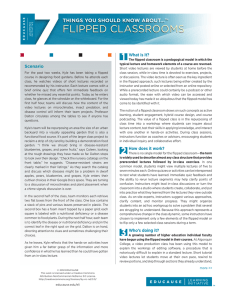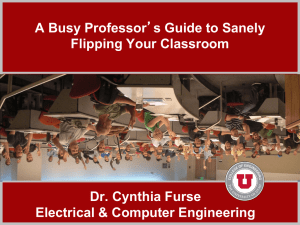Powerpoint template for scientific posters (Swarthmore College)
advertisement
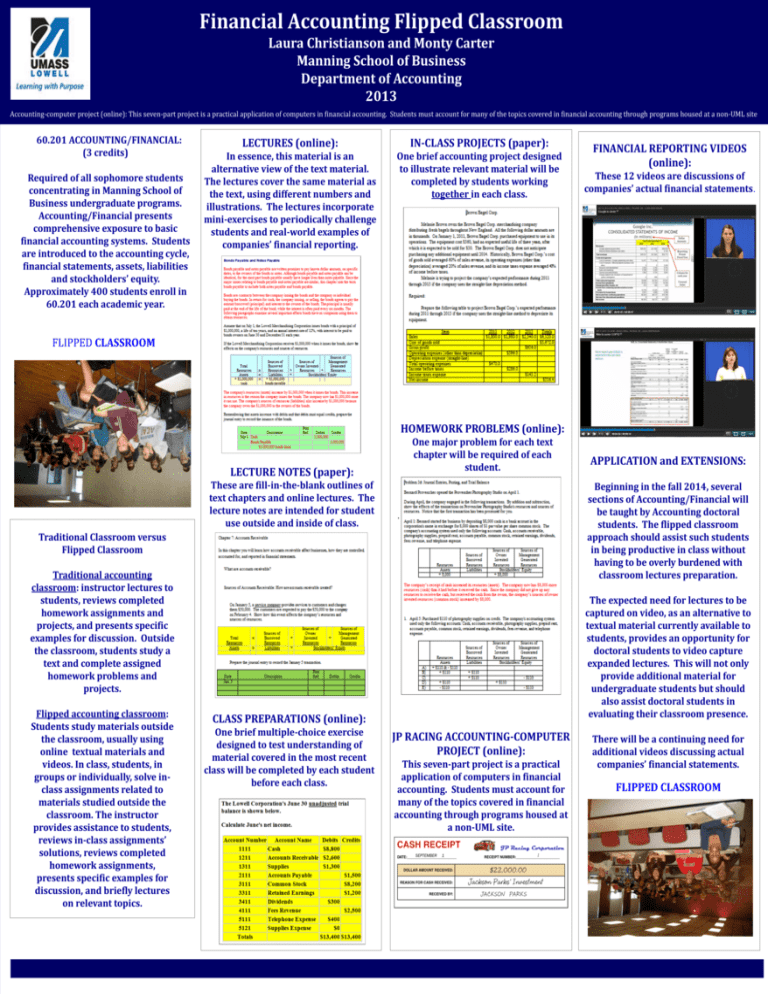
Financial Accounting Flipped Classroom Laura Christianson and Monty Carter Manning School of Business Department of Accounting 2013 Accounting-computer project (online): This seven-part project is a practical application of computers in financial accounting. Students must account for many of the topics covered in financial accounting through programs housed at a non-UML site. 60.201 ACCOUNTING/FINANCIAL: (3 credits) Required of all sophomore students concentrating in Manning School of Business undergraduate programs. Accounting/Financial presents comprehensive exposure to basic financial accounting systems. Students are introduced to the accounting cycle, financial statements, assets, liabilities and stockholders’ equity. Approximately 400 students enroll in 60.201 each academic year. LECTURES (online): IN-CLASS PROJECTS (paper): In essence, this material is an alternative view of the text material. The lectures cover the same material as the text, using different numbers and illustrations. The lectures incorporate mini-exercises to periodically challenge students and real-world examples of companies’ financial reporting. One brief accounting project designed to illustrate relevant material will be completed by students working together in each class. FINANCIAL REPORTING VIDEOS (online): These 12 videos are discussions of companies’ actual financial statements. . . FLIPPED CLASSROOM HOMEWORK PROBLEMS (online): One major problem for each text chapter will be required of each student. LECTURE NOTES (paper): These are fill-in-the-blank outlines of text chapters and online lectures. The lecture notes are intended for student use outside and inside of class. . Traditional Classroom versus Flipped Classroom Traditional accounting classroom: instructor lectures to students, reviews completed homework assignments and projects, and presents specific examples for discussion. Outside the classroom, students study a text and complete assigned homework problems and projects. Flipped accounting classroom: Students study materials outside the classroom, usually using online textual materials and videos. In class, students, in groups or individually, solve inclass assignments related to materials studied outside the classroom. The instructor provides assistance to students, reviews in-class assignments’ solutions, reviews completed homework assignments, presents specific examples for discussion, and briefly lectures on relevant topics. Beginning in the fall 2014, several sections of Accounting/Financial will be taught by Accounting doctoral students. The flipped classroom approach should assist such students in being productive in class without having to be overly burdened with classroom lectures preparation. The expected need for lectures to be captured on video, as an alternative to textual material currently available to students, provides an opportunity for doctoral students to video capture expanded lectures. This will not only provide additional material for undergraduate students but should also assist doctoral students in evaluating their classroom presence. CLASS PREPARATIONS (online): One brief multiple-choice exercise designed to test understanding of material covered in the most recent class will be completed by each student before each class. APPLICATION and EXTENSIONS: JP RACING ACCOUNTING-COMPUTER PROJECT (online): This seven-part project is a practical application of computers in financial accounting. Students must account for many of the topics covered in financial accounting through programs housed at a non-UML site. There will be a continuing need for additional videos discussing actual companies’ financial statements. FLIPPED CLASSROOM
